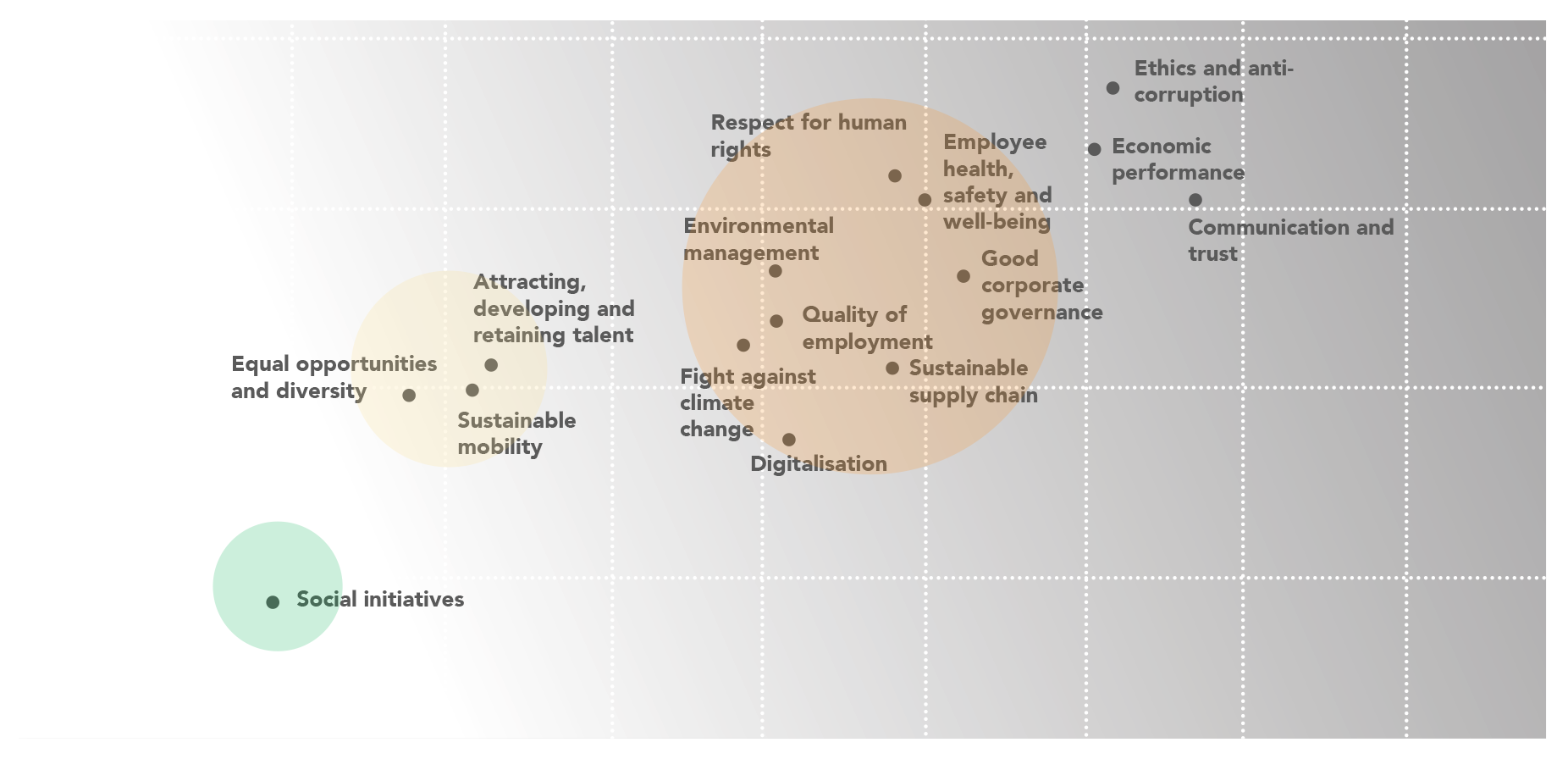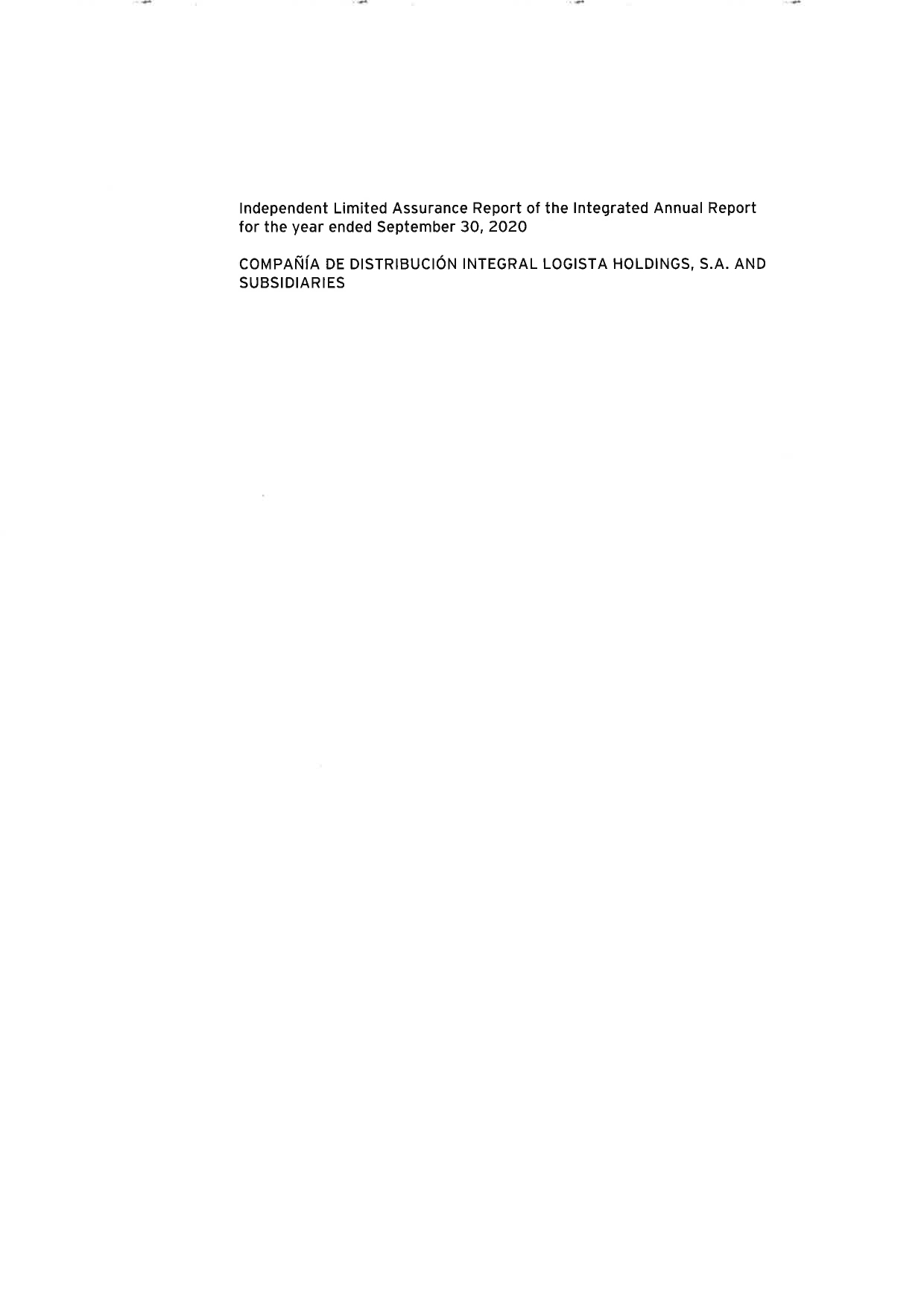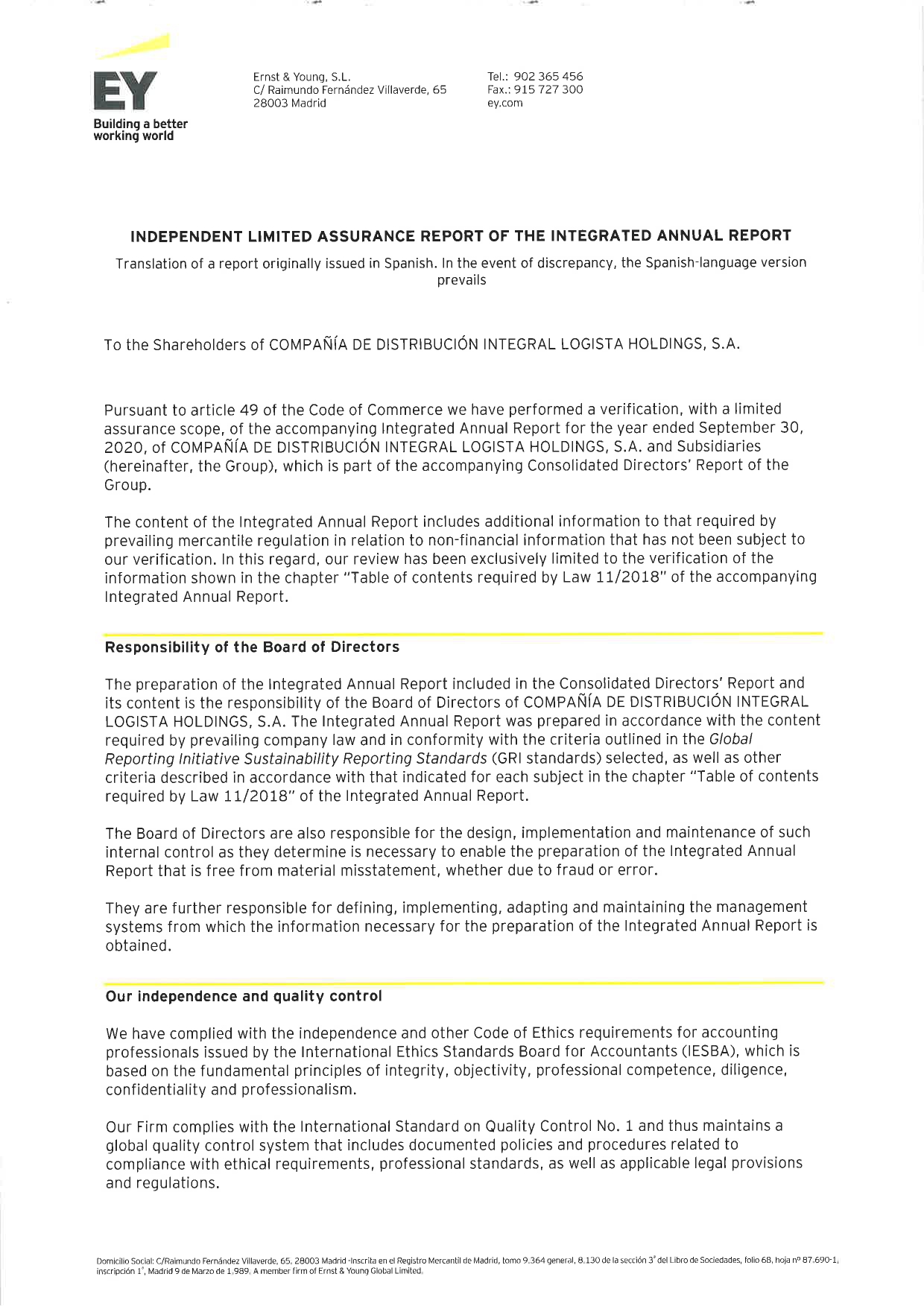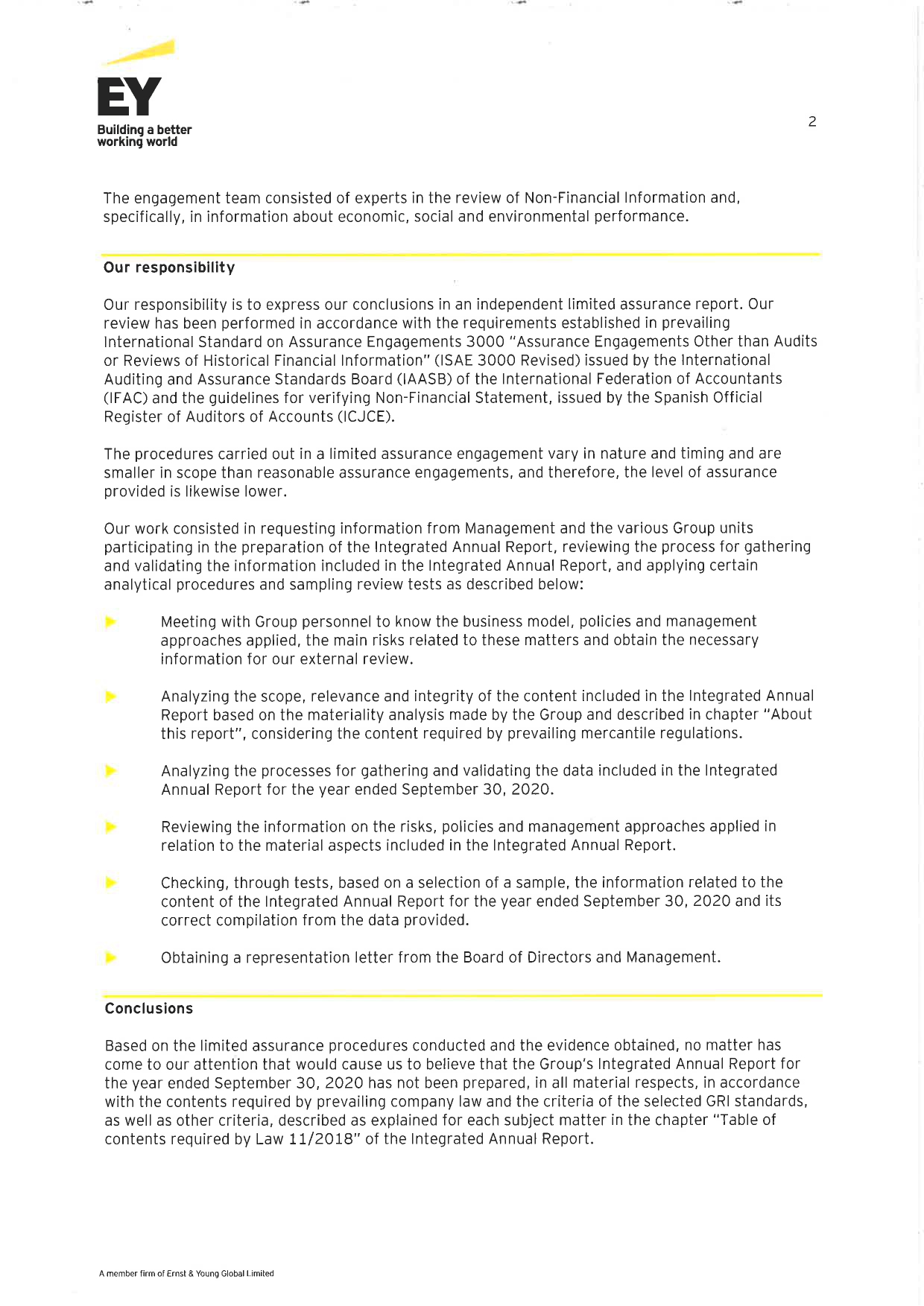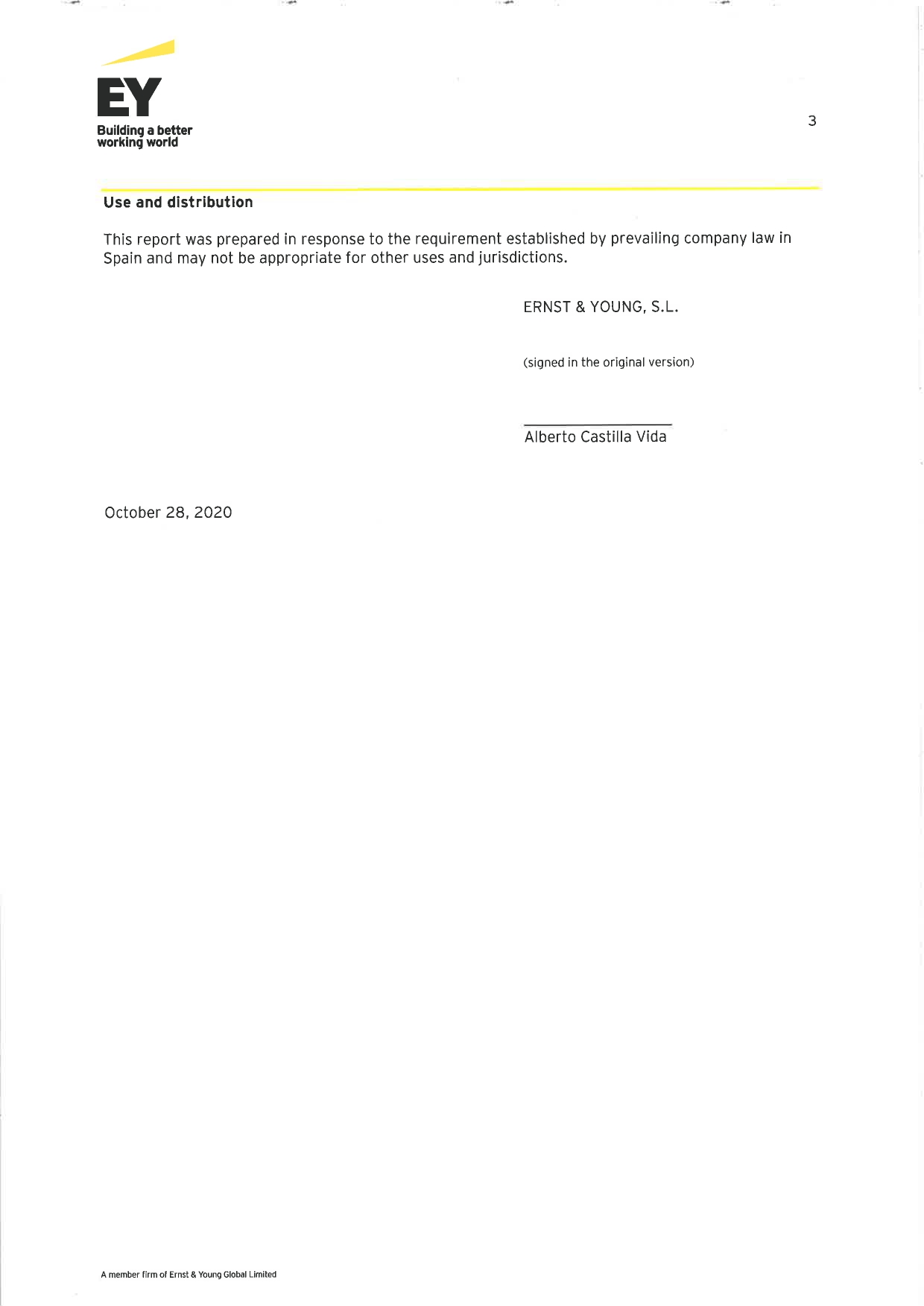| BUSINESS MODEL |
| Entrepreneurial environment and business model |
16-23 |
102-2 |
| Organization and structure |
14-15 |
102-2 |
| Markets in which the company operates |
8, 12 |
102-6 |
| Targets and strategies |
22-23 |
102-15 |
| Factors and trends affecting evolution |
20-23 |
102-15 |
| POLITICS |
It will be incorporated along those chapters related to the different topics. |
102-15 |
| RISKS |
It will be incorporated along those chapters related to the different topics. Particularly, in Corporate goverance / Risk and Opportunity Management |
102-15 |
| ENVIRONMENTAL ISSUES |
| GLOBAL |
| Impact of the firm´s activities on the environment, and health and security |
62-73 |
Internal framework: Qualitative description of the main effects |
| Environmental evaluation or certification procedures |
62-63, 68 |
Internal framework: Qualitative description of evaluations and certificates |
| Precautionary principle, quantity of provisions and guarantees regarding environmental risks |
65 |
102-11 |
| Resources devoted to preventing environmental risks |
65 |
Internal framework: Quantitative description of devoted resources |
| POLLUTION |
| Measures associated with carbon emissions |
69 |
Internal framework: Qualitative description of main measures and acts |
| Measures associated with light pollution, noise and others |
69 |
Internal framework: Qualitative description of main measures and acts |
| CIRCULAR ECONOMY AND WASTE PREVENTION AND MANAGEMENT |
| Initiatives promoting circular economy |
71 |
306-2 |
| Measures associated with waste management |
71 |
306-2 |
| Actions combating food spoilage |
Non material, taking into account the activity sector of the Company |
n.a. |
| SUSTAINABLE USE OF RESOURCES |
| Water: consumption and supply |
71 |
303-1 |
| Raw materials: consumption and measures |
71 |
301-1 |
| Energy: consumption, measures and use of renewables |
69-70, 72-73 |
302-1 |
| CLIMATE CHANGE |
| Greenhouse gas emissions |
68 |
305-1/ 305-2/ 305-3 |
| Measures for climate change adaptation |
69-70 |
Internal framework: Qualitative description of measures |
| Targets in reducing emissions |
70 |
Internal framework: Qualitative description of goals |
| BIODIVERSITY |
| Prevention measures |
73 |
Internal framework: Qualitative description of measures |
| Impacts on protected areas |
73 |
304-2 |
| SOCIAL MATTERS AND PERSONAL-RELATED ISSUES |
| EMPLOYMENT |
| Total number and distribution of employees by gender, age, country and professional category |
48 |
102-8/405-1 |
| Total number and distribution of the different modalities of labour contracts |
49 |
102-8 |
| Annual average of indefinite, temporal and partial contracts divided by gender, age and professional category |
50-51 |
102-8/405-1 |
| Number of dismissals by gender, age and professional category |
51 |
Internal framework: Total number of dismissals during the financial year by gender, age and role |
| Average remuneration and evolution disaggregated by gender, age and professional category, or equal value |
52 |
Internal framework: Average remuneration (including fixed and variable remuneration) |
| Pay gap, remuneration of equal job positions or societal averages |
53 |
Internal framework: (1-(Male average remuneration-Female average remuneration) / Male average remuneration) |
| Average remuneration of Directors and Management team by gender |
52 |
Internal framework: Average remuneration including fixed and variable remuneration |
| Politics of occupational disconnection |
54 |
Internal framework: Qualitative description of current policies |
| Disabled employees |
54, 57, 75 |
405-1 |
| WORKTIME MANAGEMENT |
| Task management |
54 |
Internal framework: Qualitative description of the worktime organization |
| Number of absence hours |
54 |
Internal framework: Number of absence hours |
| Measures of familiar reconciliation |
54 |
Internal framework: Qualitative description of measures |
| HEALTH AND SAFETY |
| Health and security conditions at work |
55 |
403-2 |
| Work accidents by gender, highlighting their frequency and severity by gender |
55 |
403-2
Internal framework: Frequency index = (Number of work accidents with sick leaves / Number of worked hours) * 1.000.000
Severity index= (Number of days lost due to work accident with sick leave / Number of worked hours) *1,000;
Lost Time Accidents Rate = (Number of work accidents with sick leave / Number of worked hours) * 200,000 |
| Professional illnesses, separated by gender |
55 |
403-2 |
| SOCIAL RELATIONS |
| Organization of social dialogue |
18, 56 |
Internal framework: Qualitative description of organization of social dialogue |
| Percentage of employees covered by collective covenants by country |
56 |
102-41 |
| Balance of collective covenants in work health and security |
30 |
403-1 |
| TRAINING |
| Implementation of politics related to training |
56 |
Internal framework: Qualitative description of policies |
| Total number of training hours by professional category |
56 |
404-1 |
| Equality |
| Universal accesibility of disabled people |
57 |
Internal framework: Qualitative description of measures |
| Adopted measures to promote equality in treatment and opportunities between women and men |
31, 53, 57, 76-77 |
Internal framework: Qualitative description of measures |
| Plans for equality and measures for promoting employement, protocols against sexual and sex-based harassment |
31, 57 |
Internal framework: Qualitative description of measures |
| Policy against discrimination and in case, diversity management |
57 |
Internal framework: Qualitative description of diversity management |
| HUMAN RIGHTS |
| Due diligence procedures in human rights matters and if required, in their mitigation, management and repair |
30-31 |
102-16/102-17 |
| Complaints for the violation of human rights |
30 |
406-1 |
| Promotion and compliance of covenants ILO associated with the freedom of association and collective negotiation |
30-31 |
102-16 |
| Elimination of employment discrimination, forced and child labour |
30-31 |
102-16 |
| CORRUPTION AND BRIBERY |
| Adopted measures to prevent corruption and bribery |
29 |
GRI 102-16/102-17 |
| Measures to fight money laundering |
29 |
GRI 102-16/102-17 |
| Contributions to non-profit foundations and entities |
29, 75 |
Internal framework: Amount of contributions in euros |
| SOCIETY |
| BUSINESS COMMITMENTS WITH SUSTINABLE DEVELOPMENT |
| Impact of activities on society: employment, local development, local populations and territory |
9, 17, 74 |
Internal framework: Qualitative description of the impact |
| Dialogue with local communities |
18 |
Internal framework: Qualitataive description of the relationships held |
| Collaborative actions and sponsorship |
75 |
102-12/102-13 |
| SUBCONTRACTING AND SUPPLIERS |
| Inclusion of social aspects, gender equality and environmental matters in procurement policies |
31, 60-61 |
102-9 |
| Consideration of environmental and social aspects in the relationships with suppliers and subcontractors |
60-61 |
102-9 |
| Supervision systems and audits, and their respective results |
60 |
308-2/414-2 |
| CONSUMERS |
| Measures for health and security of consumers; |
58-59 |
Internal framework: Qualitative description of measures |
| Complaint system, received complaints and respective resolutions |
58 |
102-17 |
| TAX INFORMATION |
| Profits by country before taxes |
75 |
Internal framework: Profits (losses) before corporation taxes by country |
| Taxes over paid profits |
75 |
Internal framework: Corporation tax paid by country |
| Public subsidies received |
75 |
201-4 |

 throughout the report and the table below indicates the sections that provide more information about those aspects for ease of reference for readers.
throughout the report and the table below indicates the sections that provide more information about those aspects for ease of reference for readers.